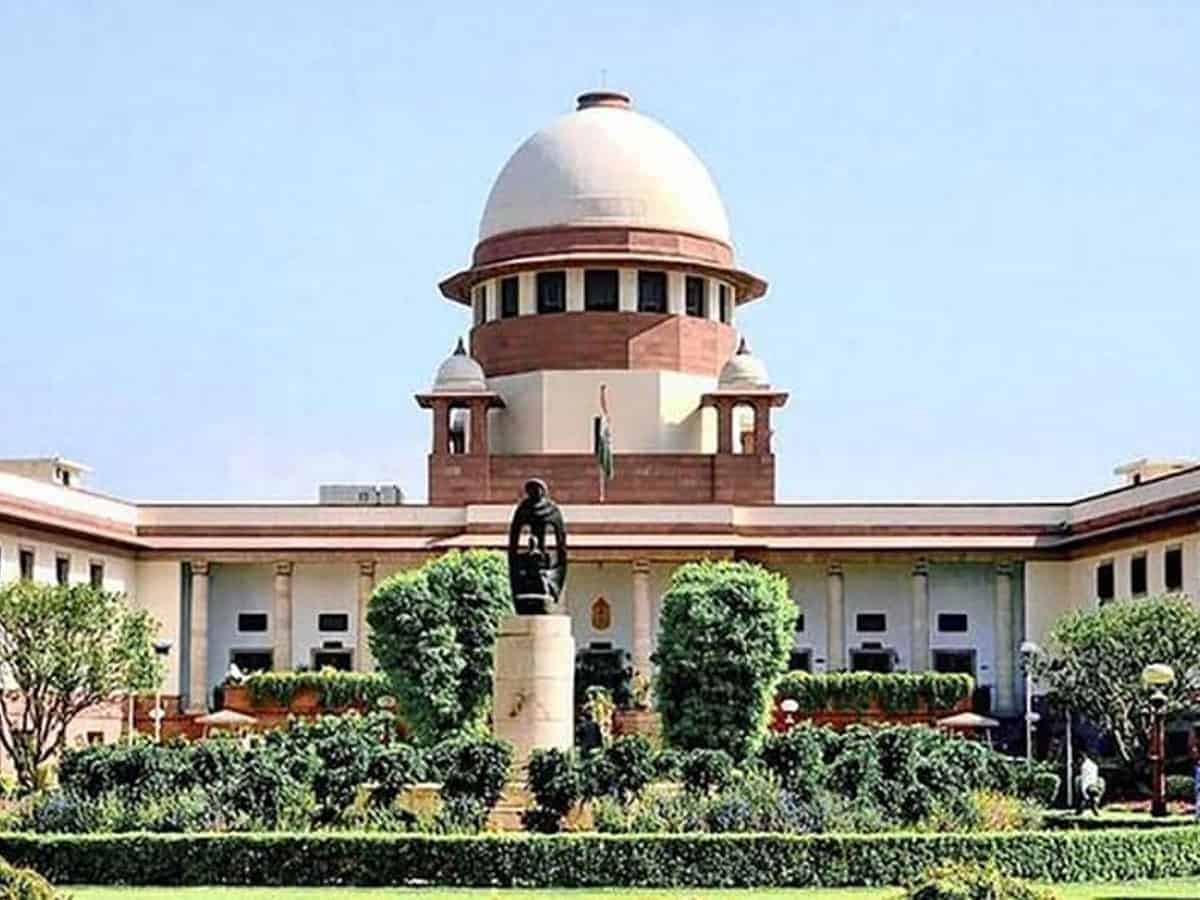
New Delhi: The Supreme Court on Monday refused to entertain the plea seeking to issue direction to the authorities concerned to remove wrong historical facts related to the construction of the Taj Mahal by Shahjahan from the books of history and textbooks referred to in the Schools, Colleges, Universities and other institutions.
A bench of justices MR Shah and CT Ravikumar told the petitioner that whatever he wanted to say then can make it before ASI.
The petitioner, thereafter, sought to withdraw his petition. The court allowed the petitioner to withdraw his petition and granted him the liberty to make representation before the ASI with the plea.
The plea has been filed by Surjit Singh Yadav, who claimed to be a farmer as well as a social worker and holds the post of Vice -President of a non-government organization namely Hindu Sena.
The Petitioner claimed that he preferred the instant petition in the shape of Public Interest Litigation (PIL) after carrying out a deep study of the history of the Taj Mahal. He also claimed that he has spent more than two years going through the books of account including the books authored by contemporary historians including court chroniclers of King Shahjahan.
The Petitioner in pursuit of his study on the Taj Mahal studied and examined various books Including King of the World: The Padshanama, History of India As Told by its Own Historians The Muhammadan
Period by Henry Miers Elliot edited by Johan Dowson, Taj Museum by Z A Desai and others.
The petitioner has cited an RTI reply given by Archeological Survey of India, Agra Circle on his various questions related to the Taj Mahal saying that the ASI reply stated that the queries which were raised by the Petitioner were outside the purview of RTI and those queries are a matter of study & research.
The plea also said that the various court chroniclers of King Shahjahan have been silent about the name of the architect of the Taj Mahal.
“It is extraordinary that why all the court chroniclers of king Shahajhan have not mentioned the name of the architect of this magnificent mausoleum. Therefore, this quite clearly indicates that the mansion of Raja Man Singh was not demolished but only modified and renovated to create the contemporary look of the Taj Mahal. That is why there is no mention of any architect in the accounts of the court chroniclers of King Shahajhan,” the plea said.
The petitioner said that his research clearly establishes that a magnificent Mansion already existed at the site where the dead body of Mumtaz Mahal was interred in a dome-like structure. “Further, the research and the study undertaken by the Petitioner showcases that the present structure of the so-called Taj Mahal mausoleum is nothing but a modification, renovation and refurbishment of the Mansion of Raj Man Singh which already existed at that point in time,” the plea said.
Hence the petitioner has sought direction to Centre to remove the wrong historical facts related to the construction of the Taj Mahal by Shahjahan from the books of history and textbooks referred to in the Schools, Colleges, Universities and other institutions.
The plea also urged the court to issue directions to the Archeological Survey of India to carry out an investigation about the age of the Taj Mahal including the existence of the palace of Raja Man Singh as of December 31, 1631, on the site of Taj Mahal, in Agra.
The plea sought to issue direction to the Respondents to remove the wrong facts from the books of history pertaining to the construction of the Taj Mahal as there is no historical evidence of demolition of the palace of Raja Man Singh and fresh construction of Taj Mahal on the same site and to publish the correct history of the palace of Raja Man Singh (which had been renovated by Shahajhan w.e.f. 1632 to 1638) and these facts can be culled out from the book namely Padshahnama authored by court chroniclers historian Abdul Hamid Lahori & Qazwini respectively.
The plea also sought to direct the Respondent to bring into the public domain the correct historical facts relating to the existence of the palace of Raja Man Singh on the land where the Taj Mahal exists and also to incorporate the correct historical fact that Shahajhan never constructed the Taj Mahal except to carry out the renovation of the palace of Raja Man Singh.



